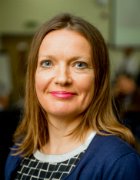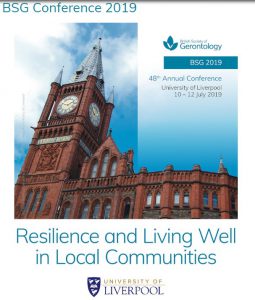Kritika Samsi and Caroline Norrie, Research Fellows at the Policy Research Unit in Health and Social Care Workforce, introduce a new study at the Unit. (329 words)

Caroline Norrie
Housekeeping staff in care homes – cleaners, those working in kitchens, laundries, maintenance – are often forgotten but are the backbone of many care homes. What happened to them during the coronavirus pandemic is the subject of a new research study. Researchers at the NIHR Health and Social Care Workforce Research Unit at King’s College London (KCL) have received NIHR Policy Research Programme funding to investigate the experiences and challenges of these care home workers during COVID-19.
Housekeeping and catering staff have been crucial during the coronavirus crisis given their role in infection control, food preparation, and help with social distancing. But they tend to be overlooked. What they have done and the challenges they faced during the crisis are often hidden. Many are women with families, work part-time, and on shifts, and often are from migrant or minority ethnic backgrounds. We know they are not well paid. Some sadly died from the virus. We want to find out whether and to what extent these workers were prepared and supported in their roles during the pandemic. This will help meet a gap in knowledge – how to better support this staff group work to prevent coronavirus, help those with it, and with service recovery. Continue reading

 HSCWRU researchers enjoyed two and a half days of stimulating presentations, symposia and keynote speeches at the British Society of Gerontology’s (BSG) 2019 Annual Conference held this year in Liverpool. The 48th BSG annual conference was entitled Resilience and Living Well in Local Communities and took place from 10 to 12th July at the University of Liverpool.
HSCWRU researchers enjoyed two and a half days of stimulating presentations, symposia and keynote speeches at the British Society of Gerontology’s (BSG) 2019 Annual Conference held this year in Liverpool. The 48th BSG annual conference was entitled Resilience and Living Well in Local Communities and took place from 10 to 12th July at the University of Liverpool.

